The ‘highest, hardest glass ceiling’: Women reflect on Hillary Clinton’s historic moment
- Share via
Whatever you may think of Hillary Clinton — and few are neutral — her accomplishment this week cannot be denied.
Just as Barack Obama’s election held deeper meaning for black voters, Clinton’s nomination as the first female presidential candidate of a major party has a special resonance for women. That “highest, hardest glass ceiling” she famously put 18 million cracks in back in 2008, may finally give come November.
We asked women of varying ages, backgrounds and political leanings what they make of Clinton, and this moment in history.
Live updates from the Democratic convention »
Some embrace her wholeheartedly, saying it is long past time for a woman in the Oval Office.
Some think the more meaningful barrier came down in 2008, when Americans elected the first black president.
Some are ambivalent; the symbolism is important, they say, but the candidate is lacking.
But there’s one thing on which they all can agree: No matter who becomes the 45th president, this is a watershed moment for women in America.
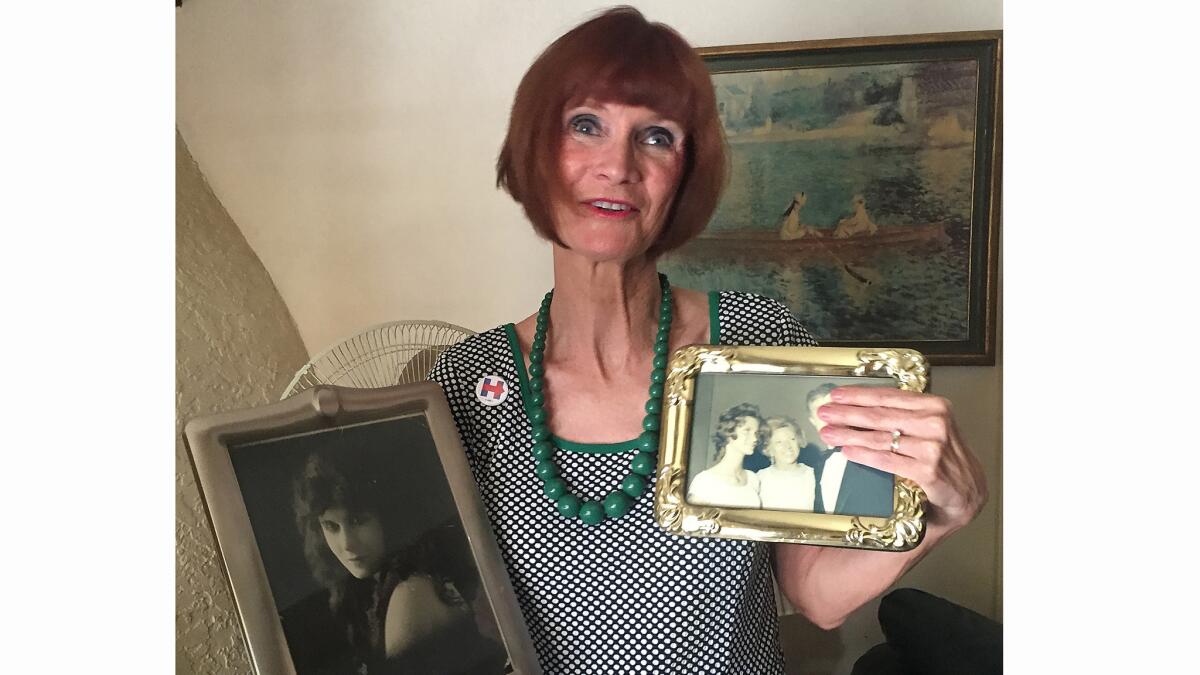
For Baby Boomer women like Celeste Pettijohn, a Phoenix-based theatrical producer and director who was raised by an attorney mother when such a thing was rare, Hillary Clinton’s achievement feels like a long overdue vindication, and something of a payback for all the sexist slights professional women have endured over the decades.
Outside her home on a curved lane lined with towering royal palms, Pettijohn tilts the “I’m with her” yard sign toward the street and straightens the one next to it, which supports the man who wants to unseat Maricopa County Sheriff Joe Arpaio.
Inside, her home hides from the punishing sun with shades drawn. In the dark are yellowed photos of Old Hollywood, mementos of her father’s time as the first general counsel for the predecessor of the Motion Picture Assn. of America.
Pettijohn, 61, sits and primly folds her hands. Her voice is quiet, unless she is angry, and when it comes to this election, she can’t quite decide if she is. Here is what she believes about Clinton’s nomination: It is not a lifetime achievement award, a thank-you card or a medal for being a woman.
She earned it.
Clinton graduated from Yale, one of the country’s great law schools. While her husband earned next to nothing as a politician, she supported her family as an attorney. She stopped wearing glasses and lightened her hair, “that Arkansas thing,” Pettijohn said, and still that wasn’t enough for her critics, so she took her husband’s last name, too.
Pettijohn grimaces at younger women, self-identified third-wave feminists, who say Clinton is too conservative and who want Massachusetts Sen. Elizabeth Warren. Don’t they realize, she wonders, that Warren voted Republican until half way through Bill Clinton’s first term?
Why does Clinton’s nomination mean so much to professional women of Pettijohn’s generation?
Because Pettijohn’s mother, the only female attorney in her New York law firm, was called “Julie” by the secretaries and was asked to make coffee.
Because her mother, who earned her law degree from Fordham University in the 1940s, was turned down for government legal jobs when lawyers’ wives objected to their husbands working with a woman.
Because Pettijohn sees herself in Clinton. She has staged dozens of plays and musicals, and even with a record of success, she must sit with the men who control the money and reassure them.
“They want to know if I know what I’m doing, if I understand that this is a lot of money or a risk,” Pettijohn said. “And this has always happened.”
As Pettijohn watched the official nomination Tuesday, she said, she felt validated. “It told me that women mattered.”
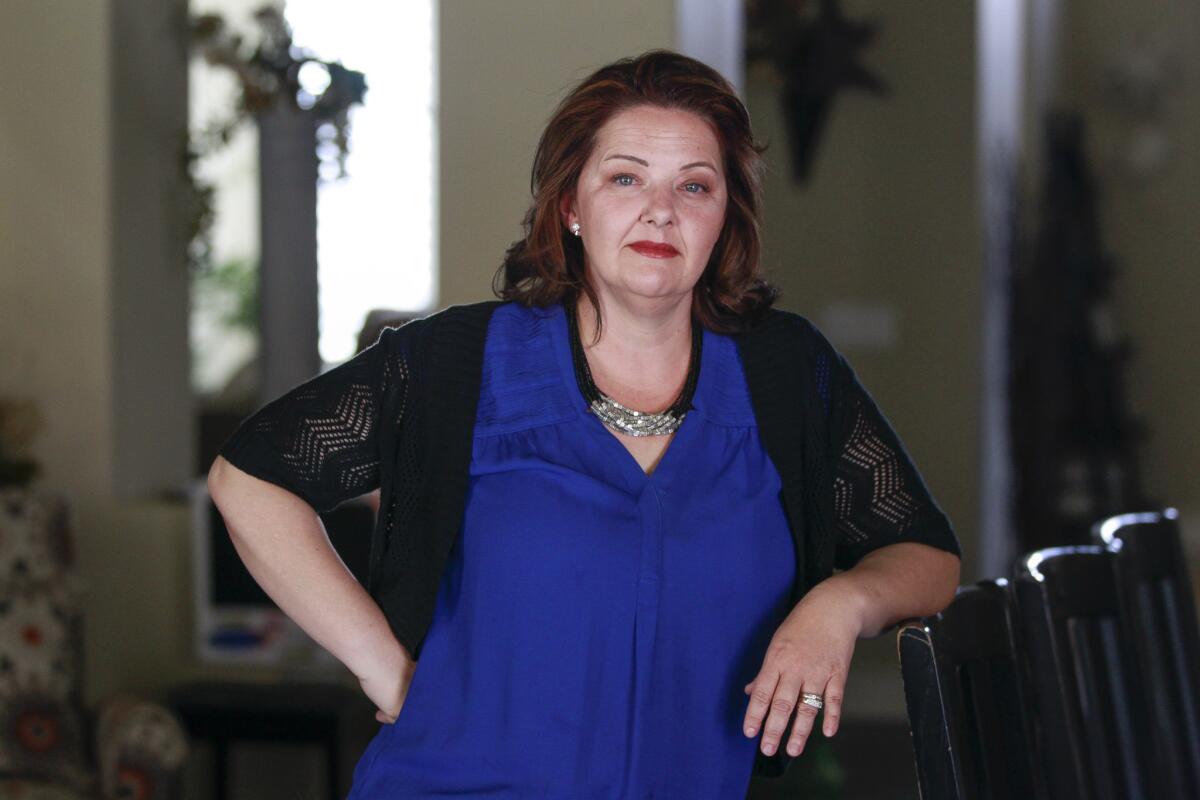
Sharla Baker’s life story reads like a feminist awakening, and yet she is ambivalent about Clinton for reasons that have as much to do with politics as personality.
Baker, 40, comes from a four-generation Central Valley farming family, now growing almonds and grapes. When she attended school in the tiny Merced County town of Dos Palos, surrounded by children from agricultural families, she understood that girls were expected to marry and support their husbands on the farm, or perhaps become teachers.
“If anybody had told me when I was young I could be a lawyer,” said Baker, who lives in Murietta, “that’s what I would have done.”
She married and had kids, and in a small act of rebellion, chose to attend culinary school, because even though most chefs were men, cooking seemed like a reasonable aspiration for a woman.
But of course, even when you try to follow the rules, life can get in the way.
Four years ago, during a difficult divorce and after a long struggle to get her two special-needs children the services they needed at school, she decided to take a path that would have once seemed radical to her as a young girl. She started taking online courses on criminal justice through National University and hopes to attend law school one day.
“I realized… that proper representation by someone who understands you makes all the difference,” Baker said.
She is also writing a cookbook that will be aimed at people with food allergies and sensitivities, something she has dealt with in her own family. She gets by with income from her family’s farming operations.
She wants to be happy about Clinton’s nomination, and thinks she will cast a vote for her in November, but she’s having trouble fully embracing her.
Like a lot of Americans, she doesn’t really like Clinton. She’s upset with her handling of emails and the Benghazi attack. She thinks the former secretary of State lacks character.
“She doesn’t own who she is,” said Baker, who was speaking while she was at a Temecula park with her children. “She just wants to be one of the boys.”
On the other hand, she says, “this may be our only chance” for a woman to become president.
Tuesday, Baker caught glimpses of the official convention roll-call vote while running errands. She was excited, in spite of herself.
“It’s awesome anyway because it’s 240 years of U.S. history,” she said. “It wasn’t that long ago that women couldn’t vote.”
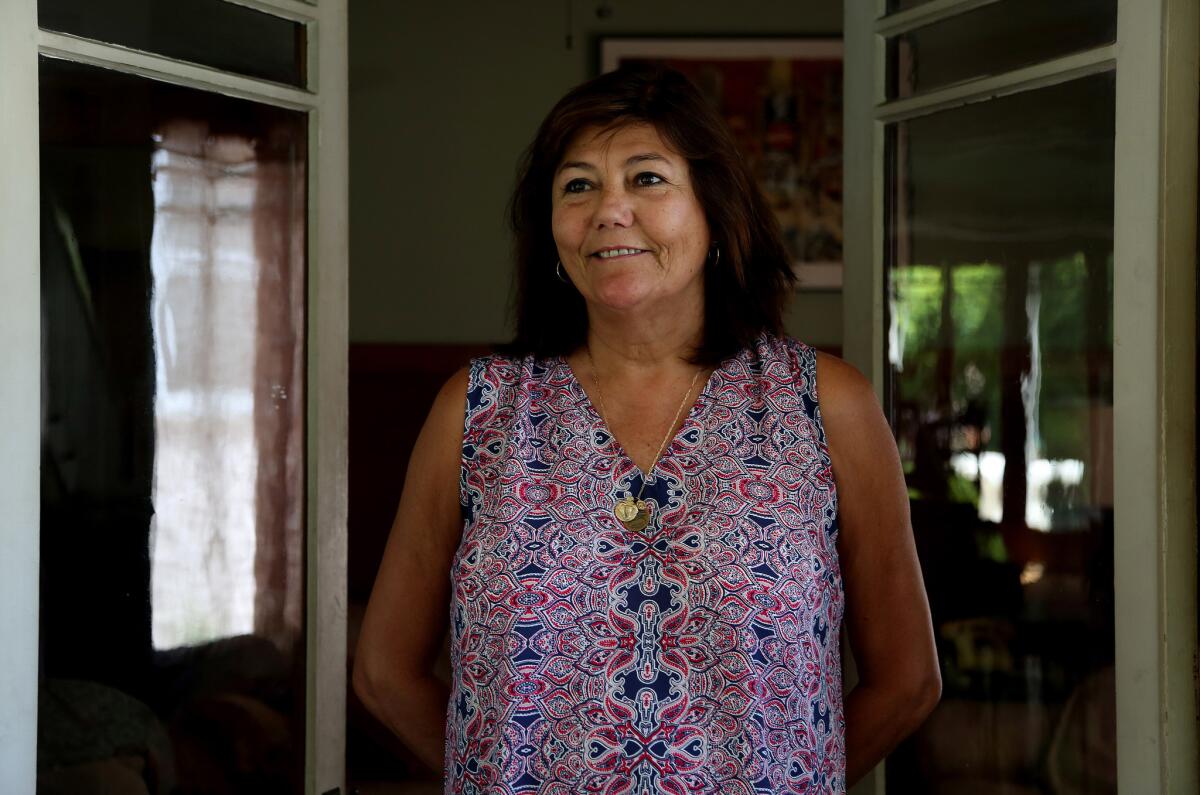
Monica Dodi is that unusual creature: a female tech entrepreneur who has made it to the top. She can relate to all the glass ceilings that Hillary Clinton and women like her have broken over the decades. And yet it frustrates her that America has yet to elect a woman as head of state.
“It’s been two steps forward, one step back for women,” said Dodi, who splits her time between an art-filled Craftsman home in Hollywood, with glass-cased bookshelves and a baby grand piano, and an apartment in Paris.
Like Clinton, she says, nothing was ever handed to her. She worked for everything she’s earned.
Her parents left Italy and France for the U.S. after World War II with nothing, and she was expected to make her own way in life. She was told she could be anything she wanted.
“I always pictured myself like Lucille Ball, always trying to figure out what the next thing was,” said Dodi, 60, who grew up in New York City. “I wasn’t going to let the status quo stop me.”
She likes that Clinton is running on her qualifications and experience, not just as the “woman” candidate.
Dodi, the daughter of a chef, attended Georgetown University on scholarship and appreciates that Clinton earned an excellent education through “sheer will and hard work.”
Dodi’s first job was with an early tech start-up in Washington, D.C., (the tech, she laughs, happened to be microfilm) run by a retired colonel who supported her as she toured military bases. The colonel told her constantly that her gender was irrelevant to her work. “I have to say, aside from some snide comments from the suits, I never felt belittled for being female.”
On a lark, Dodi applied to Harvard Business School; more than 80% of her classmates were men. The women’s restroom had to have paper signs on the door, she said.
She went on to become a founder of MTV Europe and senior vice president for Disney consumer products in France. She also worked for Warner Bros. television and AOL. After discovering that 95% of venture capital goes to male entrepreneurs, she co-founded the Women’s Venture Capital Fund in 2010.
As Dodi sees it, Clinton’s marriage gave her a public stage but at a price. The limelight has not always been Clinton’s friend. Dodi sees strength and judgment in Clinton’s decision to stick it out through marital difficulties.
“Whatever indiscretions Bill may have had, whether we agree with them or not, she’s forgiven him,” Dodi said. “Sometimes getting a divorce is the easy way out. I wish I could be as forgiving.”
Dodi was off to Paris with her dog, Eleanor, in a rolling carrier, but plans to volunteer for Clinton’s campaign when she returns in September.
“I won’t be satisfied until she actually gets elected, just to show that America is what we all thought it was, opportunity for all,” Dodi said. “I’ll celebrate with a number of glasses of the bubbly.”
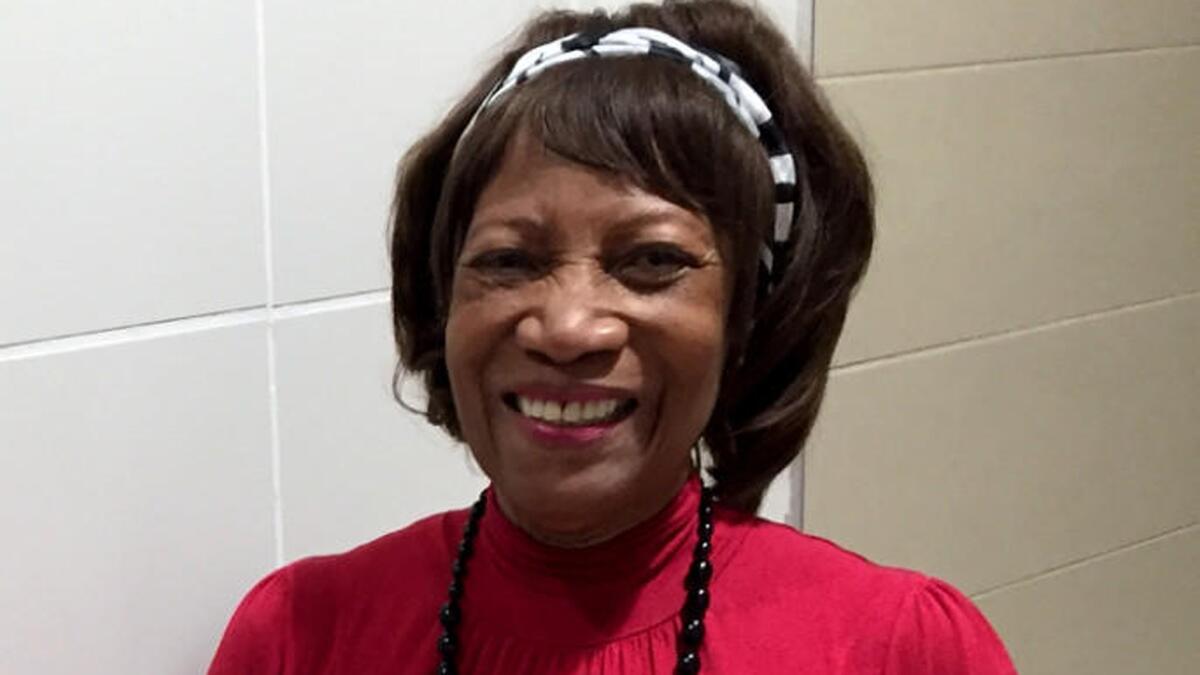
For black women who came up during the civil rights movement and lived to see something they never dared imagine — a black president — it’s hard to summon the same enthusiasm for Hillary Clinton’s groundbreaking candidacy.
“I could see why people think it’s a big deal,” said Harlean Franklin, 76, a retired teacher who lives in Leimert Park and supports Clinton. “I just don’t think it’s a big deal.”
In the small entry hall of her apartment, Franklin displays photos of Martin Luther King Jr. and Malcolm X. An even bigger photo shows Barack and Michelle Obama in the Red Room of the White House. For Franklin, these are powerful symbols of African American progress in the struggle against racial discrimination.
“They’re family to me, because they paved the way for me and many others,” she said.
Barriers to equal rights for blacks, she feels, have always loomed larger than discrimination against women. When she grew up in Memphis, Tenn., in the 1940s and ‘50s, racial segregation in housing, education and jobs was rigid. So if Clinton wins the White House, Franklin will be pleased, but she will not be inclined to add the former secretary of state to her gallery.
Franklin taught second grade in Leimert Park at what’s now the Tom Bradley Global Awareness Magnet School, named after the first black mayor of Los Angeles. The world seemed to suggest “that I couldn’t do certain things because I was a black child or a female,” but Franklin’s family taught her that “you could be whatever you want to be,” she recalled after a recent Spanish class at the Oasis Senior Center in Baldwin Hills.
Franklin arrived in Los Angeles at 18 years old, just as the civil rights movement was gaining strength. In the early 1960s, she found a job at a savings and loan on Wilshire Boulevard. The NAACP had been pressuring the S&L to hire blacks, she said, but white coworkers shunned those who got jobs and kept them away from customers.
Inspired by biblical teaching on loving one’s adversaries, Franklin used kindness and hard work to ease the racial tension. “I came in earlier than most people, I left later, I took breaks shorter,” she said. “You have to do better than those people when you’re in that predicament.”
Those who returned her good will “didn’t want their friends to know they were being kind to me,” she said. “They didn’t want to get in trouble.”
When Franklin thinks about the breakthrough that Clinton represents for women, she is reminded of the brutality in “Strange Fruit,” the haunting song, made famous by Billie Holiday, about the lynching of African Americans. The discrimination that women still face is important, she said, but not on the scale of the nation’s racial injustice.
“One is life and death,” she said. “And the other is kind of just painful.”
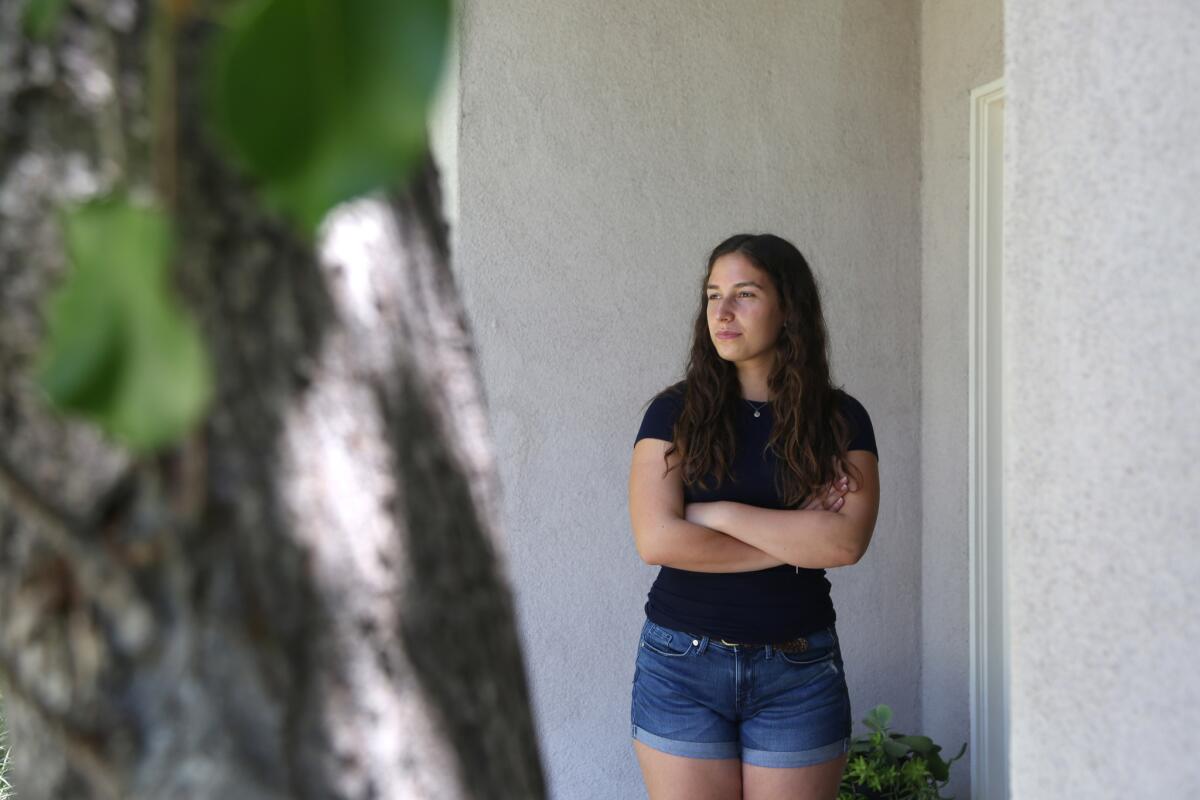
Like a lot of college students swept up by the passion that Vermont Sen. Bernie Sanders inspired among younger voters, Leah Jaffe has had to recalibrate her thinking on Hillary Clinton. As she walked around the UC Berkeley campus just before the California primary, she heard almost nothing about Clinton. And when her name did come up, it was all negative: Clinton was too cozy with Wall Street, she’s too moderate.
Jaffe, who just finished her freshman year at Cal, agreed. She cast her first presidential vote for Sanders.
It didn’t take her long to come around. In November, she said, she will happily support Clinton.
“It’s exciting,” said Jaffe, 19, who is majoring in Development Studies, which focuses on social change. “There’s so much gender disparity in our country. It would be amazing to see a woman in power.”
Sitting in the dining room of her parents’ Sherman Oaks home, surrounded by photographs of the women in her family — mother, grandmother, older sister — Jaffe grew animated as she described the double standard applied to Clinton, who has been criticized for her wardrobe, her hairstyle and her husband, former President Bill Clinton.
“We see this problem where it’s not about her policy, rather it’s about her personal life,” Jaffe said. “I’m sure they’ll ask what her emotional state is going to be like.”
When Jaffe found out Clinton had been officially nominated Tuesday afternoon, she went back and watched former President Clinton’s speech. But the gravity of Hillary Clinton’s nomination didn’t truly hit her until Wednesday morning. Clinton’s victory, she said, gave her hope for gender equality.
“It has actually sunk in, and it feels very real. This is a momentous moment in history,” said Jaffe, who aspires to a career in politics.
“And what does that say about the limits of being a woman? There are no limits,” she said.
Leah’s mother, Fran Jaffe, agreed. “This means they can do anything,” the 60-year-old said.
A retired dietitian, Jaffe said she never experienced the kind of sexism that has plagued women in male-dominated fields. Still, she hopes Clinton’s nomination will have a positive effect in the workplace.
“My daughters grew up in a world where you told them that they could be anything that they wanted to be,” Jaffe said. “But did you really believe it? Or did they really believe it? Probably not.”
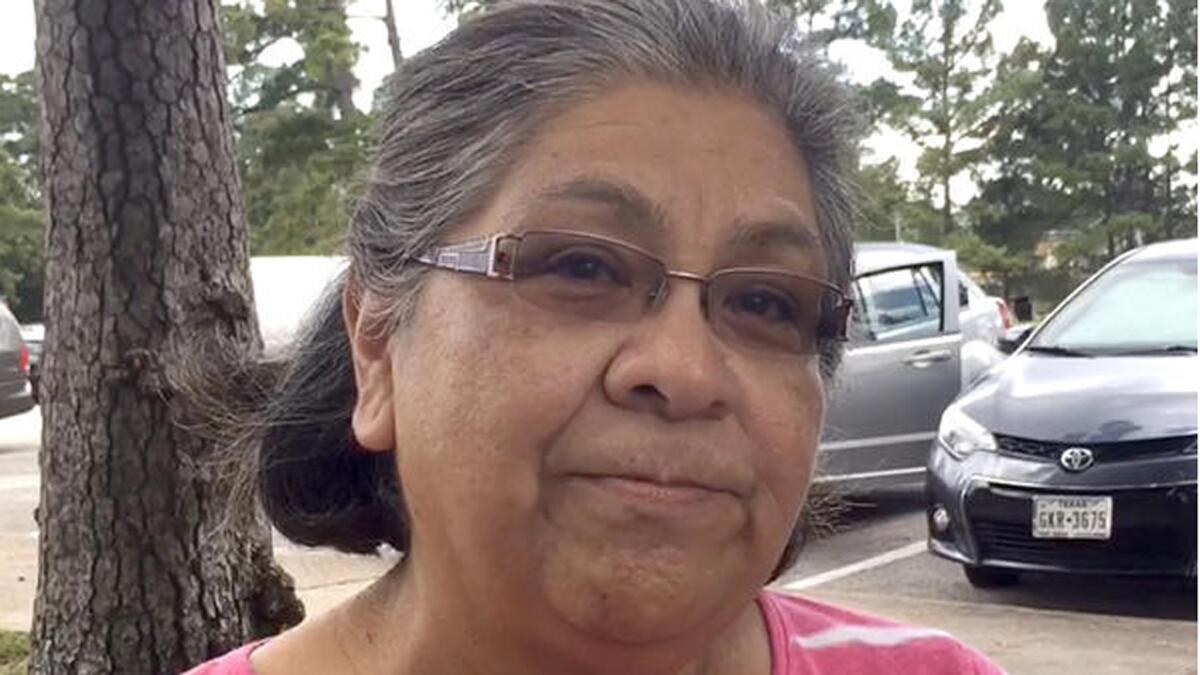
Throughout her long career of public service, Hillary Clinton has often relied on testimonies about her Methodist faith and her role as mother, and now grandmother, to soften what many see as her rough edges.
But Alice Maldonado, a conservative Southern Baptist who gave up her work to stay home with her children years ago, isn’t buying.
“I don’t see her as very motherly,” said Maldonado, who joined a circle of women speaking Spanish and English at a Sunday school class picnic under the pines in Houston’s Memorial Park last weekend. More important, she cannot support a candidate whose values are so at odds with her own.
Maldonado, 62, said Christian values guide how she lives her life, including how she votes. Clinton, she said, is too liberal on the social issues that matter most to her, gay marriage and abortion rights.
Growing up in San Antonio, Maldonado attended high school part-time and worked in a grocery store, moving up through the ranks into management. Later on, she qualified for a scholarship through church, and decided to attend Houston Baptist University and study to become a bilingual teacher.
Those were the days of women’s liberation, she recalled, of “I am woman, hear me roar.”
“When I was single, it was ‘I can do anything! I can conquer the world!’” Maldonado said, laughing. “I never felt anything was impossible.”
But soon after moving, she married at age 29 and had the first of five children.
“As soon as I had my first one, I knew I wanted to stay home,” she said.
She has mixed feelings about a woman running for president but said it’s important to set an example for girls like those at the picnic, “just to show a woman can do it, that there’s nothing to stop them from reaching their goals. It does take a lot of courage. It shows the younger girls that nothing is impossible.”
One of the girls piped up.
“It would be amazing to have a woman president,” 11 year-old Sarah Fernandez said.
Maldonado smiled.
As storm clouds gathered and her group packed up to leave the park, she said, “I think it’s important as a country to keep these values that we’ve had since Thomas Jefferson, since the beginning, and not to change them, you know. What God says doesn’t change.”
________________________________________________
This article was reported and written by Times staff members Nigel Duara in Phoenix; Molly Hennessy-Fiske in Houston; Paloma Esquivel in Temecula, Calif.; and Sarah Parvini, Gale Holland, Michael Finnegan and Robin Abcarian in Los Angeles.
About the image at top: Democratic Party nominees for president since 1920, the first year women were allowed to vote in all states: James M. Cox, John W. Davis, Al Smith, Franklin Delano Roosevelt, Harry S. Truman, Adlai Stevenson II, John F. Kennedy, Lyndon B. Johnson, Hubert Humphrey, George McGovern, Jimmy Carter, Walter Mondale, Michael Dukakis, Bill Clinton, Al Gore, John Kerry, Barack Obama and Hillary Clinton.
ALSO
Column: The Obama-Clinton hug that will go down in history
Even after a convention that critics panned, Trump got a big bounce. Will Clinton gain now too?
Videos: Catch up on highlights from the Democratic National Convention
More to Read
Get the L.A. Times Politics newsletter
Deeply reported insights into legislation, politics and policy from Sacramento, Washington and beyond. In your inbox three times per week.
You may occasionally receive promotional content from the Los Angeles Times.










